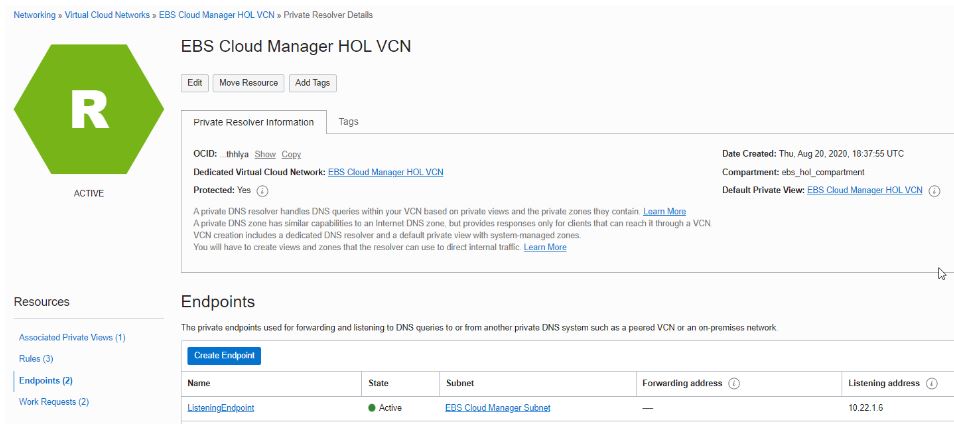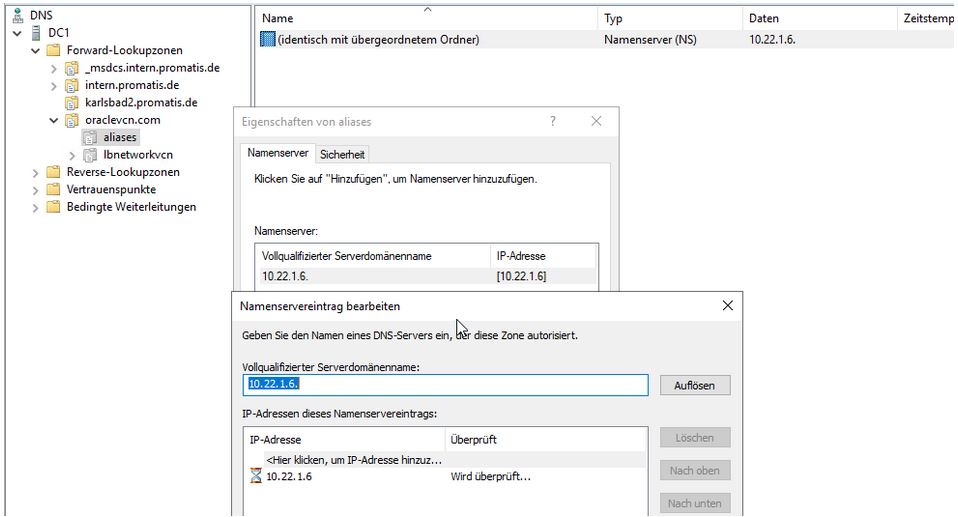
DNS Private View
First of all, DNS Private Views, as I described over there, are very helpful. Using them, it is possible to define DNS entries within OCI. It is then possible to:
- modify those entries using the OCI APIs, e.g. using the OCI CLI,
- setup your regular DNS server to resolve some domains using the OCI DNS Server.
Modifying OCI DNS entries by API
Modifying DNS entries using the OCI console is quite straightforward:

I prefer to have CNAME (=Aliases) over a "static" (within DNS) name, such as upgebsora.aliases.oraclevcn.com, to the actual current instance name that is maintained/created automatically through Cloud Manager (e.g. upg220934db.regionaldb.lbnetworkvcn.oraclevcn.com).
So how can we change this mapping (column RDATA) with the API? Just use a command as follows:
oci dns record domain update --domain upgebsora.aliases.oraclevcn.com --zone-name-or-id ocid1.dns-zone.oc1.eu-frankfurt-1.XXXX --items
"[{\"domain\":\"upgebsora.aliases.oraclevcn.com\",\"rdata\":\"${HOST_DB}.regionaldb.lbnetworkvcn.oraclevcn.com.\",\"rtype\":\"CNAME\",\"ttl\":300}]" --force
This command can be included in the cloning script and then updates the static database hostname to the newly created hostname (${HOST_DB}).
Delegating Windows Active Directory / DNS
The above Private Views can be resolved anywhere within your OCI Virtual Cloud Network. Often, however, there is an additional DNS server in place managing the "Non-OCI" company-internal DNS entries. Without any special configuration, this DNS server is not able to resolve *.oraclevcn.com hostnames defined within the Virtual Cloud Network. To overcome this issues, first you have to create a (DNS) Listening Endpoint within the OCI network:

With that, you then have to create a new primary forward-lookup zone "oraclevcn.com":

Within that new zone, create a new "delegation" for (in this case) both aliases.oraclevcn.com and lbnetworkvcn.oraclevcn.com:

At last, test the name resolution with your standard DNS server:

Summary
With DNS Private Views and a Listening Endpoint, you can configure your company DNS server to resolve OCI hostnames using the DNS functionalities of the OCI Virtual Cloud Network. Since those can be easily modified with OCI APIs, it is possible to fully automate changes to the DNS of E-Business Suite-related hostnames.


